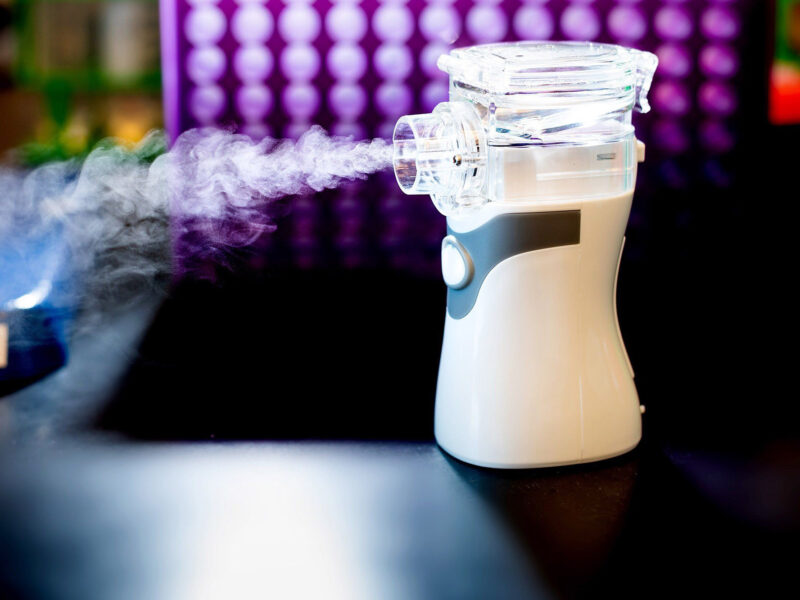
Researchers at the University of California, San Francisco have devised a nasal spray to administer synthetic antibodies, which they believe will help stop the spread of the coronavirus.
A team led by graduate student Michael Schoof engineered the synthetic molecules that “straitjackets the crucial SARS-CoV-2 machinery that allows the virus to infect our cells,” according to a report in the university’s website.
A paper posted on the preprint server bioRxiv says experiments using the live virus show the molecule is among the most powerful COVID-19 antivirals yet discovered.
While it’s not a traditional vaccine, the researchers believe one spray a day of the synthetic antibodies, dubbed “AeroNabs,” from a nasal spray or inhales could offer protection from the deadly bug until a vaccine becomes available, according to ABC 7 News.
“Because it’s so stable we can essentially put in one of these, this is a little nebulizer,” said Dr. Aashish Manglik, an assistant professor of pharmaceutical chemistry UCSF, who added that the aerosolized agents trace back to a minuscule molecule first discovered in camels and similar animals, called a nanobody.
They’re smaller than human antibodies, and can be manipulated to perform specific tasks. Like attaching themselves to the spike proteins on the coronavirus.
“It’s effectively a really effective mousetrap. It binds to one of these spike proteins and never lets go,” Manglik said.
The researchers pored through about 2 billion synthetic nanobodies before they found the best candidate, which they re-engineered to be even more powerful, the news outlet reported.
A UCSF researcher examines a tube of purified spike protein from the SARS-COV-2 virus in the lab of Aashish Manglik.Noah Berger
Knowing the coronavirus uses its spikes to attach itself to apart of the lung cell called an Ace2 receptor, they worked to stop the invasion in its tracks.
When the AeroNabs attach to the spike protein, the virus can’t bind to the receptor and consequently loses its ability to infect cells, ABC 7 News reported.
“Far more effective than wearable forms of personal protective equipment, we think of AeroNabs as a molecular form of PPE that could serve as an important stopgap until vaccines provide a more permanent solution to COVID-19,” said AeroNabs co-inventor Peter Walter, professor of biochemistry and biophysics at UCSF.
For people who don’t have access or don’t respond to coronavirus vaccines, Walter added, AeroNabs could be a more permanent line of defense against the disease.
Manglik, who frequently uses nanobodies in his research on the structure and function of proteins, said: “Though they function much like the antibodies found in the human immune system, nanobodies offer a number of unique advantages for effective therapeutics against SARS-CoV-2.”
The UCSF team is in discussions with potential partners to ramp up production for clinical trials.
If successful, the researchers aim to make AeroNabs widely available as an inexpensive, over-the-counter preventative measure or treatment against the coronavirus.






Leave a Reply